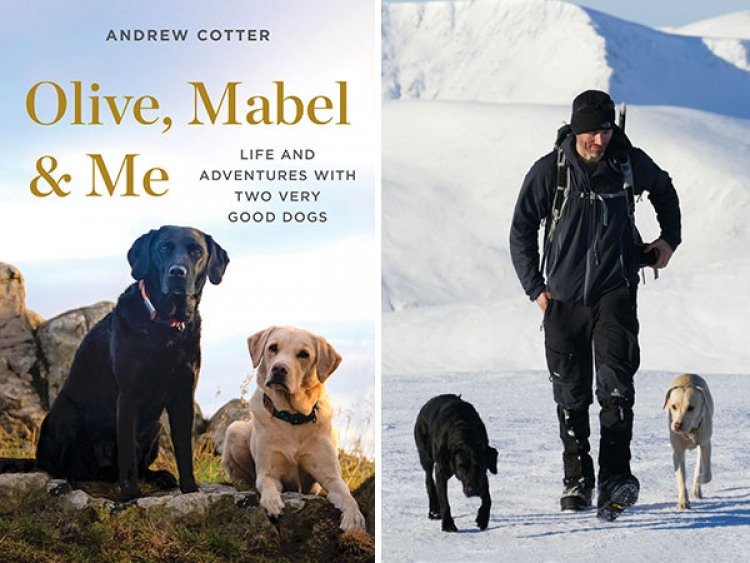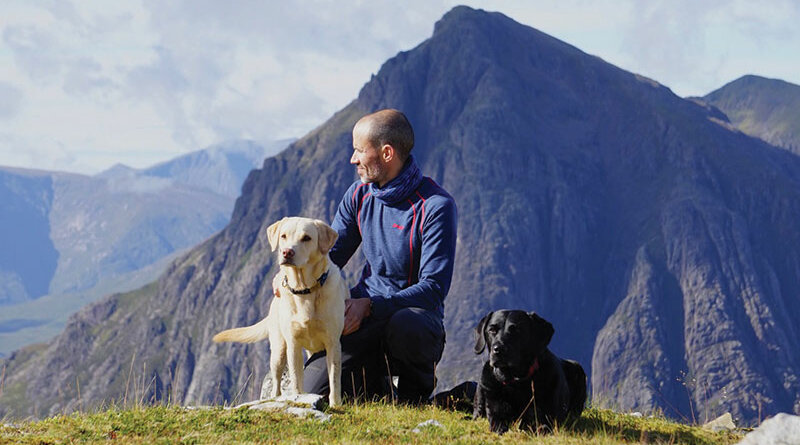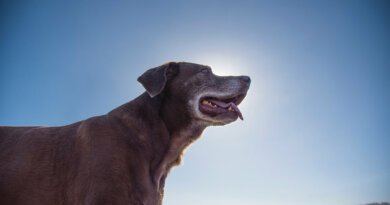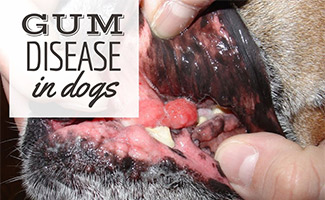Talking with the author of Olive, Mabel & Me
What does someone who makes his living in the world of professional sports do when sporting events are shut down due to a pandemic? If you’re BBC sports commentator Andrew Cotter, you turn to your dogs, Labs Olive and Mabel, for diversion, making short videos in which you narrate their day-to-day lives, then sharing the videos online … and watch what you thought was a mildly amusing “bit of fun” blow up the internet.
You also write a book, Olive, Mabel & Me: Life and Adventures with Two Very Good Dogs, which has just been released, so we wanted to learn more from the “Me,” Andrew Cotter.
Bark: How did you get into sports broadcasting? And do you narrate other events in your or your wife’s daily lives?
Andrew Cotter: I rather fell into the job of sports broadcasting, like many people just fall into their jobs. I can’t say that I had dreamed of being a sports broadcaster from a very young age. But since my university degree qualified me for absolutely nothing, it seemed to be the best option available. I have a love of language and of sport, so it was a natural combination. And no, I can safely say that I don’t go around narrating day-to-day events, since that would be extraordinarily odd. But then I do talk to my dogs, so perhaps I already fall into that camp.
GET THE BARK IN YOUR INBOX!
Sign up for our newsletter and stay in the know.
B: Dogs seem to be a natural for your kind of narration. Why do you think that is?
AC: Because they’re such unwitting victims. They don’t know I’m adding commentary—they’re just acting perfectly naturally, doing very normal dog things. When we add our human situations to their innocence, the juxtaposition is just funny. Besides, dogs simply make you laugh, even without added commentary.
B: How do you decide on the tone to take in your commentaries?
AC: I think the first one, “The Dog’s Breakfast,” would be more like rugby or athletics [track and field] … fast-paced action that demands a certain type of commentary. But the second one, “Game of Bones,” was definitely inspired by golf commentary, the quiet, whispering drama.
B: Were some episodes harder to peg than others?
AC: The first three videos were dogs being dogs, and it was also great fun to then put them in a Zoom meeting, or have Mabel fall victim to an internet scam or Olive doing online dating. I really enjoyed all of them, but once you leave behind the dogs simply being dogs, the filming becomes far more difficult, and it is more difficult to come up with the ideas as well. Also, sometimes dogs just being dogs does provide a far better choreography to work with than anything else.
B: Why do you think your work has become such an internet sensation?
AC: I think it has certainly been down to the very strange situation that we’ve all found ourselves in this year. At the time of the first videos, we were trapped online and on social media and wondering what on earth was going on. There was a collective feeling that we were all in this together and were simply looking for something to laugh at when there wasn’t much else to find funny. Humans will always find something to laugh about, even in the darkest of times—I think it’s our greatest defense mechanism. Add to that the fact that dogs were involved, and you have all the ingredients for the viral success.
But yes, the reaction was overwhelming and entirely positive, which was both wonderful and remarkable. All the comments were nice, but some really stood out: A woman emailed me to say that her sister had just begun treatment for cancer and that the videos made a real difference to her at an awful time, so we sent her a special message. In fact, there were any number of messages along those lines, and I realized that even something so silly and trivial can have a real difference. Suddenly, the positive side of social media was laid out before me.
B: I love your expression “people of dogs.” How do you think we differ from the dogless set?
AC: I often think that adults who don’t have dogs or don’t like dogs simply weren’t introduced to them as youngsters, but that can’t always be the case. But I’m sure that anybody who loves dogs has some goodness and kindness in them, because we want to take care of a creature, to love it and to have it love us in return.
B: Here in the U.S., there’s been a real uptick in shelter adoptions during the pandemic. Has it been the same in the UK?
AC: Yes, or at least, there certainly seems to have been a huge number of people getting dogs. I hope that plenty were adopted rather than just bought from a breeder, because if anything good could come out of this year it would be nice to think that a homeless dog was finding a family to become part of.

B: Why do you think some dog people insist on thinking about (and talking to) their dogs as though they were small, furry humans? Do you think this does a disservice to dogs?
AC: I understand it, because of that desire to truly connect with the dogs, but it’s not really for me. Perhaps they think seeing dogs that way elevates them in terms of companionship, and some might really need that due to the situation that they’re in. However, we do have to remember that dogs are still essentially wolves and will act and behave accordingly, and also need a bit of discipline and training now and again. But if people are treating their dogs well and keeping them healthy, I think that’s the most important thing. They can talk to them how they want (just don’t dress them up, is my only request).
B: Any advice on how to treat dogs?
AC: As previously mentioned, all dogs will, on occasion, do what they want when the primeval wolf urges overtake them. As long as they listen to you most of the time, the occasional misstep is fine. Having said that, while I exaggerate my frustration a bit for the videos, I do occasionally get truly exasperated with them—usually when eating enormous quantities of grass is involved. It drives me crazy, as I have to deal with the consequences.
B: What’s the future look like for Cotter & Co.?
AC: There have been many offers to endorse all manner of dog products, but—although Olive would have loved me to go with a couple of the pet food companies that were interested—it’s just not my thing. There have also been plenty of offers to do merchandise, like calendars, mugs, t-shirts and so forth. But again, it’s not for me. I’ve never wanted to be seen to be treating Olive and Mabel as commodities, so we won’t be going down that line.
There was an offer of a theatre tour; we were booked to appear at the London Palladium in November until restrictions meant it had to be cancelled. And in the summer, there was certainly interest from a couple of producers for projects in television, but I think unless you act quickly on these, the appetite fades and I was too busy with the book. But we’ll see.
B: You mentioned you might consider getting a third dog sometime in the near future. Is there something in particular you would be looking for in a new dog?
AC: Olive and Mabel have such different personalities that somewhere in between the two would be great. I just hope the new one knows how to follow direction properly and learn lines. I can’t work with amateurs …




online shopping pharmacy india https://indiapharmfd.com/# – cheapest online pharmacy india